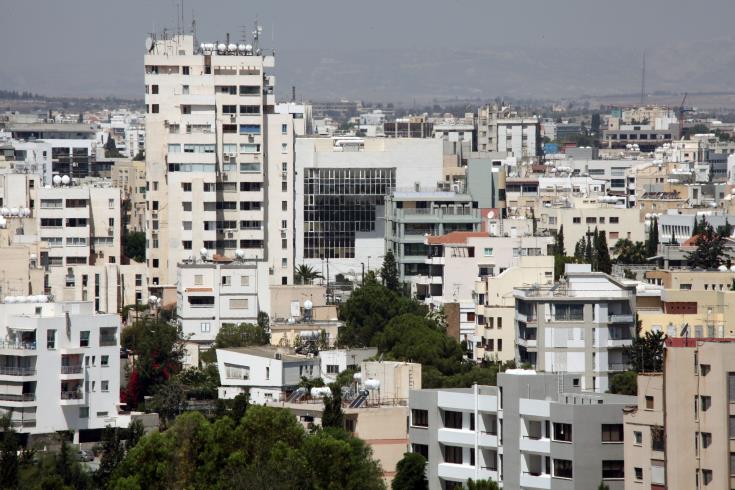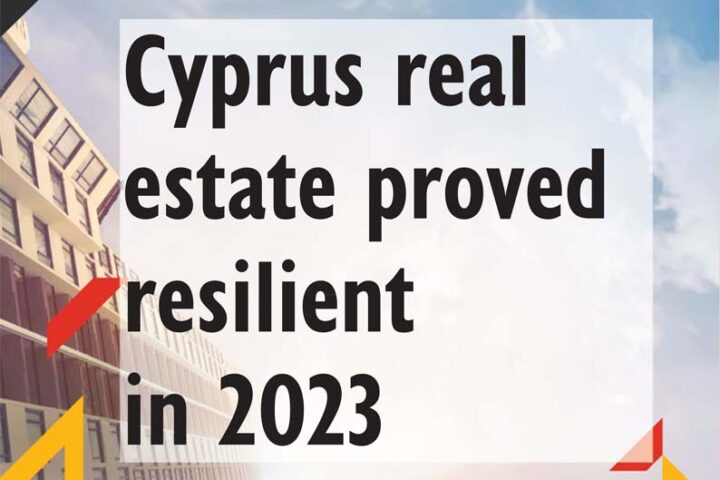When travelling on aeroplanes, the stewards go through the routine of explaining what the passengers should follow in the event of difficulty and when we hear “brace-brace”, we should follow a certain procedure.
In the event of having to abandon the aircraft, floor lights come up to guide the passengers towards the emergency exits.
Although we are not on a plane, the virus has produced many negative effects on the Cyprus economy and by projection the real estate market.
The precautionary measures of our Government are to reduce the effects of the virus, not only to protect public health but also to the economy, which survived the 2013 banking crisis.
We hope that the virus will be beaten within a short period but nobody knows when (expert opinion varies from July to next year).
Admittedly, the foundation of the Cyprus economy is tourism which will not reach nearly 4 million of last year.
We will “suddenly” have reduced bookings at best at 50%, which will turn everything upside down.
This inevitably affects the economy and the expected GDP growth of 3%, this will not be attainable.
In terms of tourism, this will affect all the other rivals destinations which have a similar problem, so we are more or less in the same boat.
But then, we have the real estate market/building industry, being the third-largest foreign/earner which other countries do not have.
We are also told that the virus has difficulties in surviving in hot weather.
So, and notwithstanding our discomfort of the hot weather, there is, here, a positive effect.
The measures by the Government and reduction of tourism (travel bans) will have repercussions regarding the Cyprus Investment Scheme, the reduction of income from employees and business, outstanding debts by developers and reduced demand from local and foreign buyers.
So, there you go, another blow to the Cyprus passport for investment, whereas the reduction/uncertainty of income by the locals will also affect real estate demand.
Will this cause a reduction in real estate prices?
In our opinion definitely yes, with the extent of the reduction depending on the time frame that these measures are In place and if a vaccine is found.
This will increase demand at least for the next year for rentals, especially residential apartments in all towns possibly increasing rental levels further.
To this end, the new restrictions on Airbnb (in addition to tourism reduction) will increase somewhat the supply at least for the summer season, a sort of counterweight to rental levels/demand.
It is certain that business/Government will suffer, but on the other hand, the various measures (e.g. working from home) is an alternative which if successful might be to our benefit with a new way of doing business and which might be adopted post-virus (less office space requirement, internet conferences etc).
If successful, there is no turning back which might work to the benefit of the economy.
At this point in time will there be “opportunities” for reduced sales prices?
Yes, we expect so, depending always on the time frame, especially for those units that are directed towards the foreign market.
On the other hand, and bearing in mind the expected postponement of purchases by locals (until the situation is stabilized) rents for the local market will go up again.
We often report how the plight of other competitive countries has helped the Cyprus economy (Egypt, Turkey, Serbia, Russia etc.).
This time, however, the circumstances are different since we have in addition to the above, the “oil war”, that is going on between Russia and Saudi Arabia, which has dropped oil prices at a historic low level (reducing income for the Russian investors, in addition to the other factors).
The world economy is now in trouble and it seems that yet again real estate in Cyprus remains the only “stable” investment in terms of returns and security of asset/rental income (for the local residential owners).
Cyprus has postponed fast-track eviction for non-payment statutory tenants.
This measure, be it temporary, will place this line with the other income/salary reductions, but it is not expected to reduce returns of real estate to the extent that it will direct investors to other investments.










